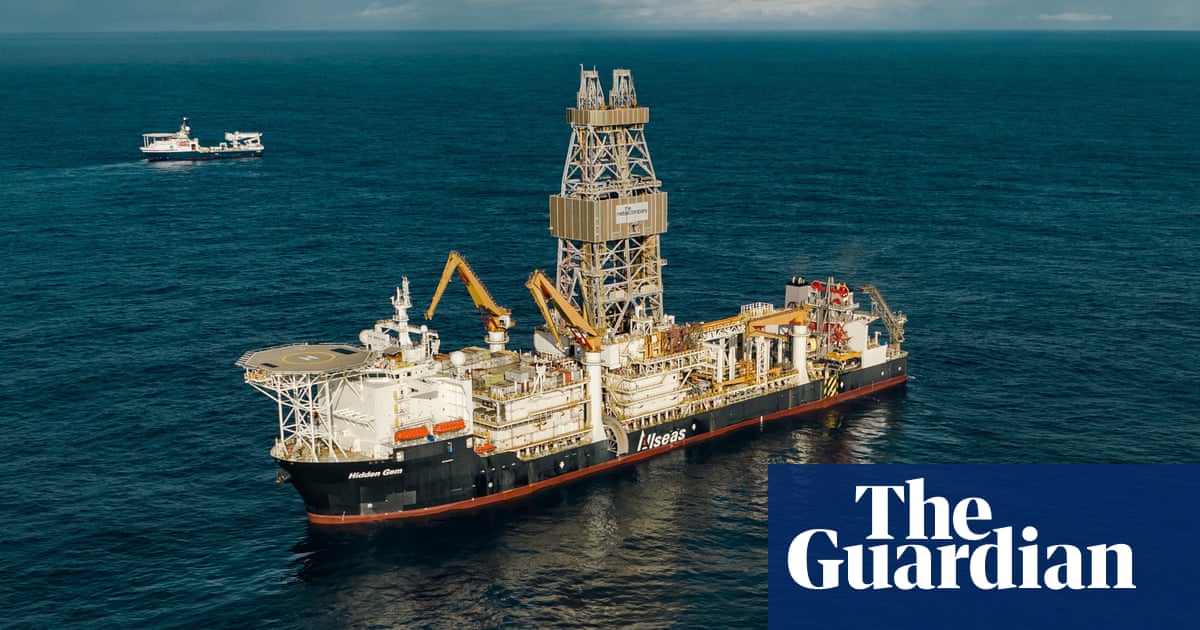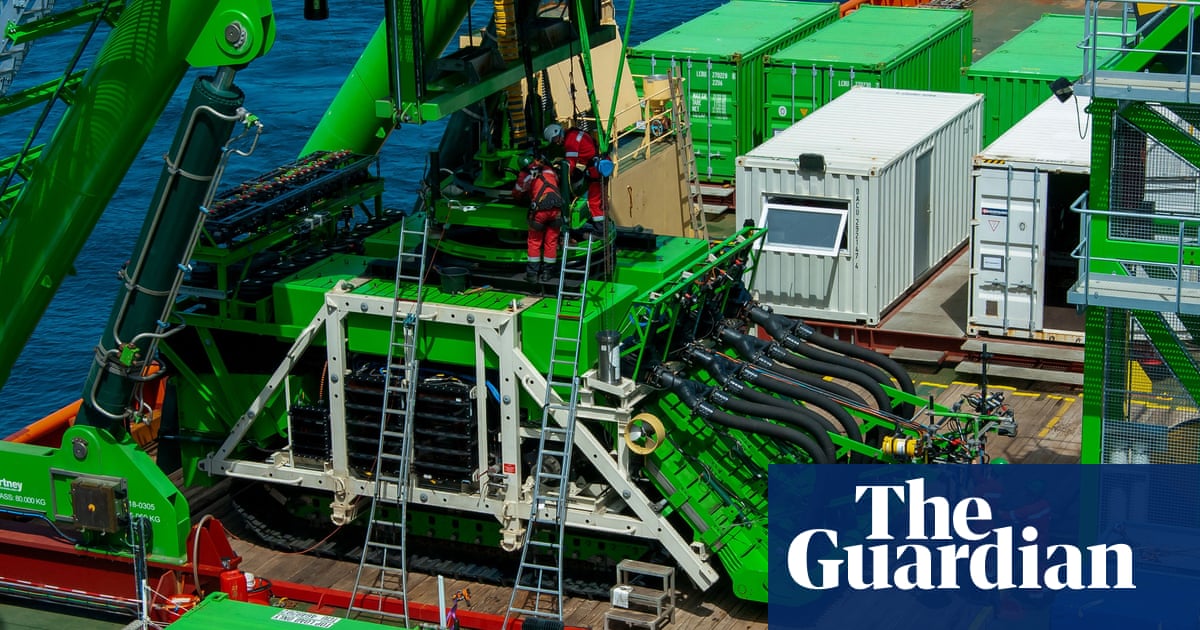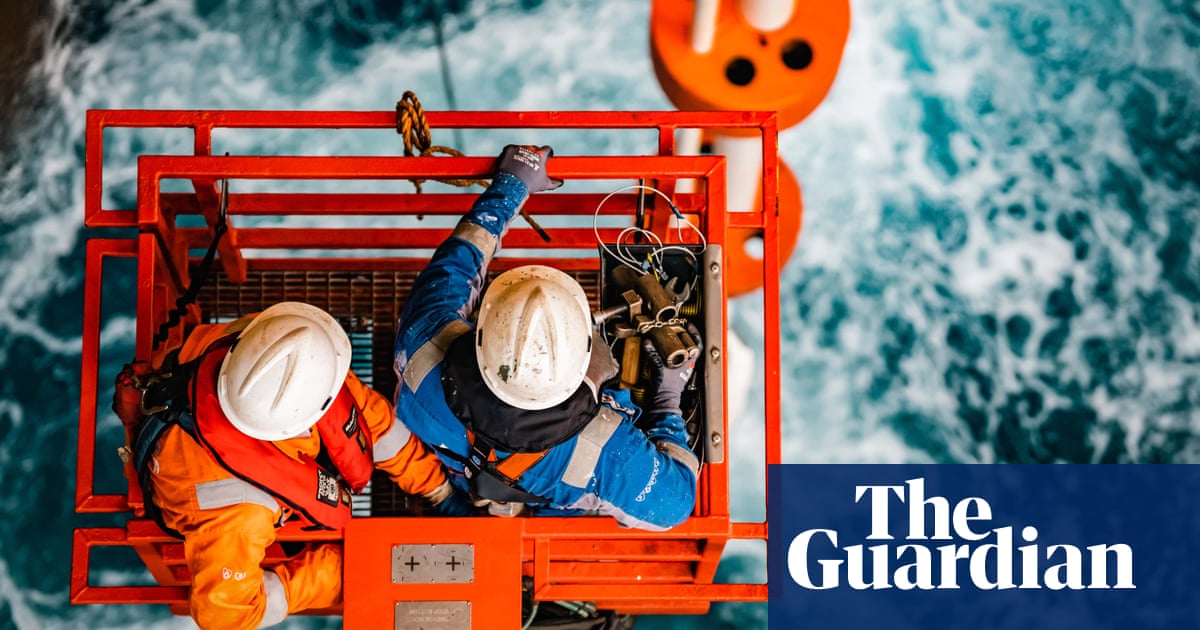
A motion calling for a ban on deep-sea mining has been adopted in Marseille at the world’s biggest biodiversity summit since the pandemic, after an overwhelmingly supportive vote by governments and civil society groups.
The world congress of the International Union for the Conservation of Nature recognised scientists’ concerns that biodiversity loss will be inevitable, is likely to be permanent and the consequences for the ocean’s ecosystem unknown if deep-sea mining is permitted.
Conservationists say the motion sends a strong message to governments about the global opposition to the mining of the seabed at vast depths for valuable minerals and metals.
Matthew Gianni, the co-founder of the Deep Sea Conservation Coalition (DSCC), said he was pleased with the overwhelming support for a ban from government, agencies and NGOs.
“Member countries of the International Seabed Authority, including France, which hosted this congress, need to wake up and act on behalf of civil society and the environment now and take action in support of a moratorium,” Gianni said.
Among governments and government agencies, 81 voted for the moratorium, 18 against and 28 abstained. For NGOs and civil society groups, the vote was even more in favour of motion 069, with 577 for, 32 against and 35 abstentions.
The German environment ministry, the government of Fiji and many other government agencies voted to support the motion, according to the DSCC. The UK was one of the countries that abstained from voting on the motion.
The motion calls on all state members to support a moratorium on deep-sea mining until rigorous and transparent impact assessments are carried out, the social, cultural and economic risks understood, and the protection of the marine environment ensured. It also called on states to promote the reform of the International Seabed Authority (ISA) to ensure transparent and environmentally responsible decision-making and regulation.
About 167 countries plus the European Union are members of the ISA, a multi-agency authority established under the UN convention of the law of the sea. The body is debating whether to begin licensing commercial mining of the seabed in as little as two years’ time.
Charles Clover, the executive director of marine conservation charity Blue Marine Foundation, said: “The International Seabed Authority is so hidden from public view that deep-sea mining, with little investigation of its environmental consequences, has been allowed to progress to the point that it could start in just two years. The overwhelming vote in this IUCN motion is an expression of what the world actually wants – a moratorium on deep-sea mining. The ISA now needs to take this very seriously.”
Conservationist organisations, including the IUCN, have pointed out the conflict of interest at the heart of the ISA. Its dual mandate, towards “promoting the development of deep-sea minerals while ensuring that this development is not harmful to the environment”, has led to calls from the IUCN and others for “improved oversight” by the international community to ensure marine life is protected.
In June, the Pacific nation of Nauru triggered the “two-year rule”, referred to by some as the nuclear option, which sets a deadline of two years for the ISA to finalise regulations governing the industry. If it is unable to do so, the ISA is required to allow mining companies to begin work under whatever regulations are in place at the time.
There are signs of opposition to the race towards commercial mining by ISA members. In a letter to the ISA in July, the African group said Nauru’s triggering of the two-year rule was “likely to weaken rather than facilitate the development of an effective regime fully embodying the common heritage of mankind principle”.
The letter said the financial regime “that properly compensate[s] humanity for its resources” had yet to be established. Further, the African group’s comment on transparency, inspection, compliance, enforcement and transboundary harm had not been included in the draft regulations, it said.
The motion for a moratorium was sponsored by Fauna and Flora International, and co-sponsored by the Fundación MarViva in Costa Rica, Natural Resources Defense Council, Sylvia Earle Alliance/Mission Blue, Synchronicity Earth, UK, Wildlands Conservation Trust, South Africa and the World Wide Fund for Nature.
A spokesperson for the UK’s Department for Environment, Food and Rural Affairs said: “At the IUCN World Conservation Congress, the UK abstained from voting on the motion for a moratorium on deep sea mining. We have committed not to sponsor or support the issuing of any exploitation licences for deep sea mining projects, unless and until there is sufficient scientific evidence about the potential impact on deep sea ecosystems – and strong and enforceable environmental regulations and standards are in place.”












